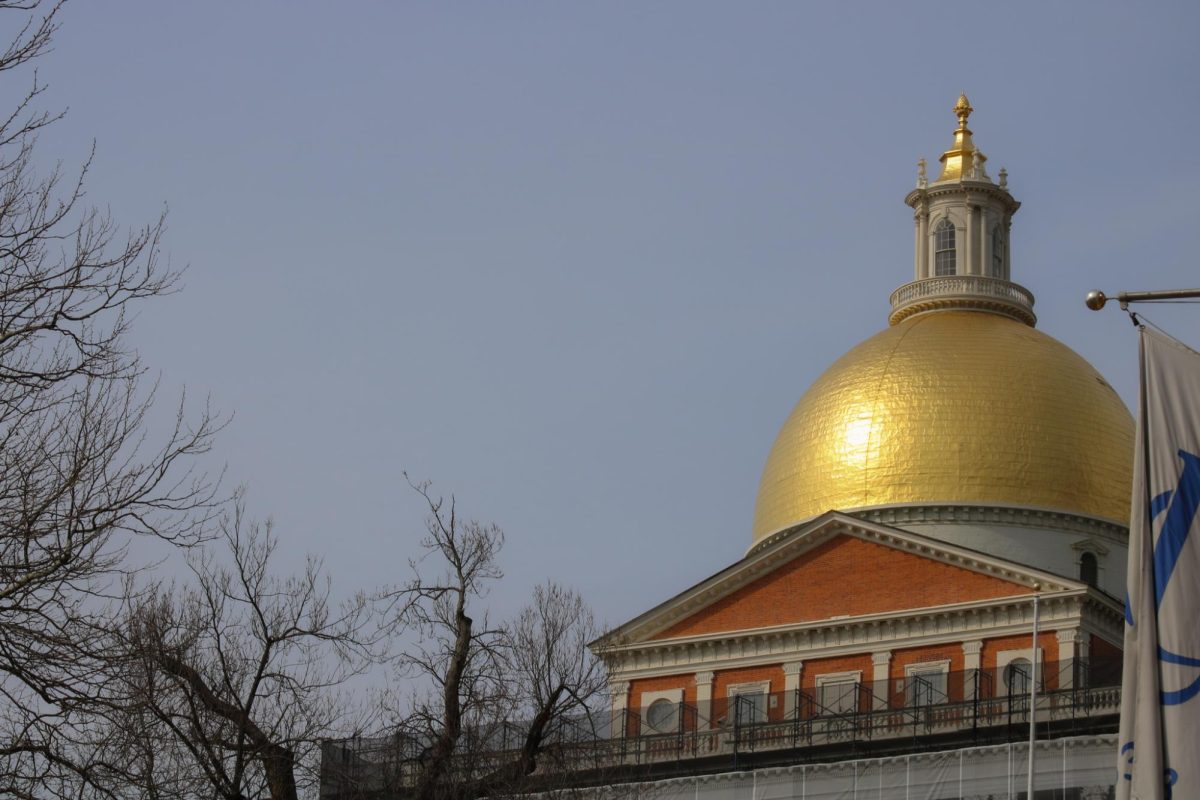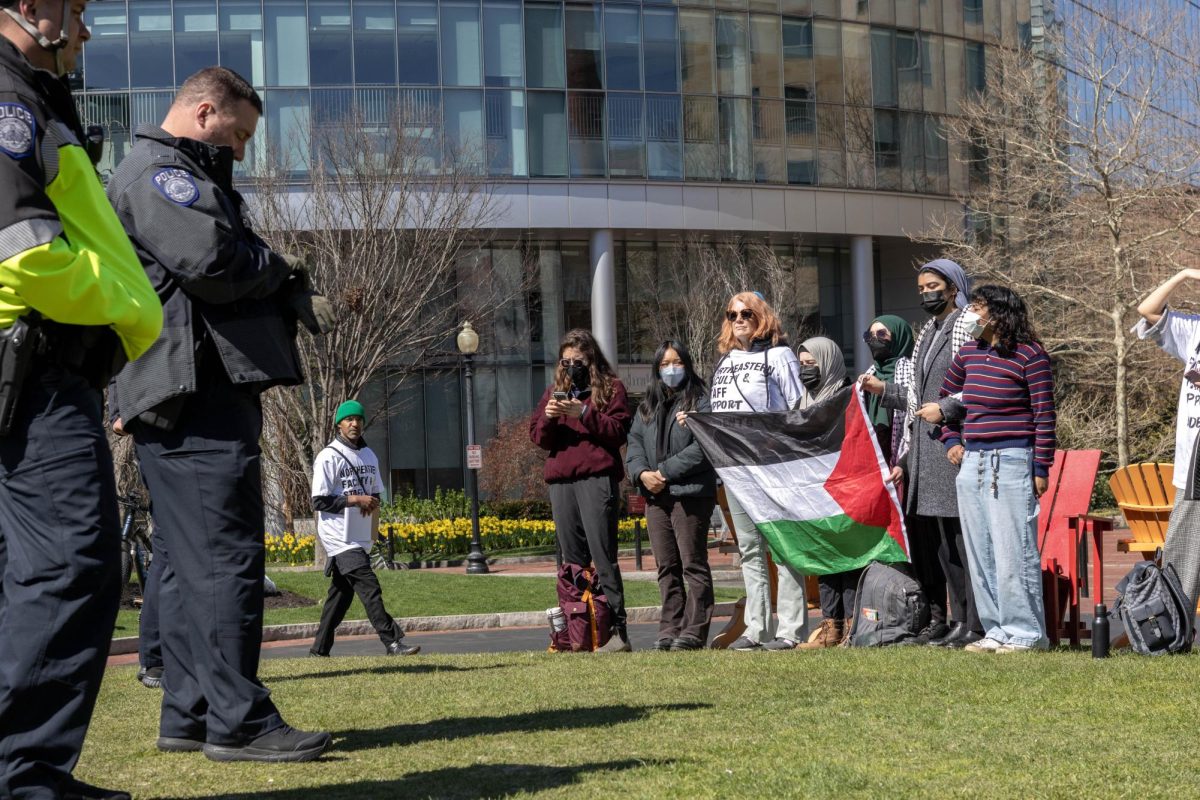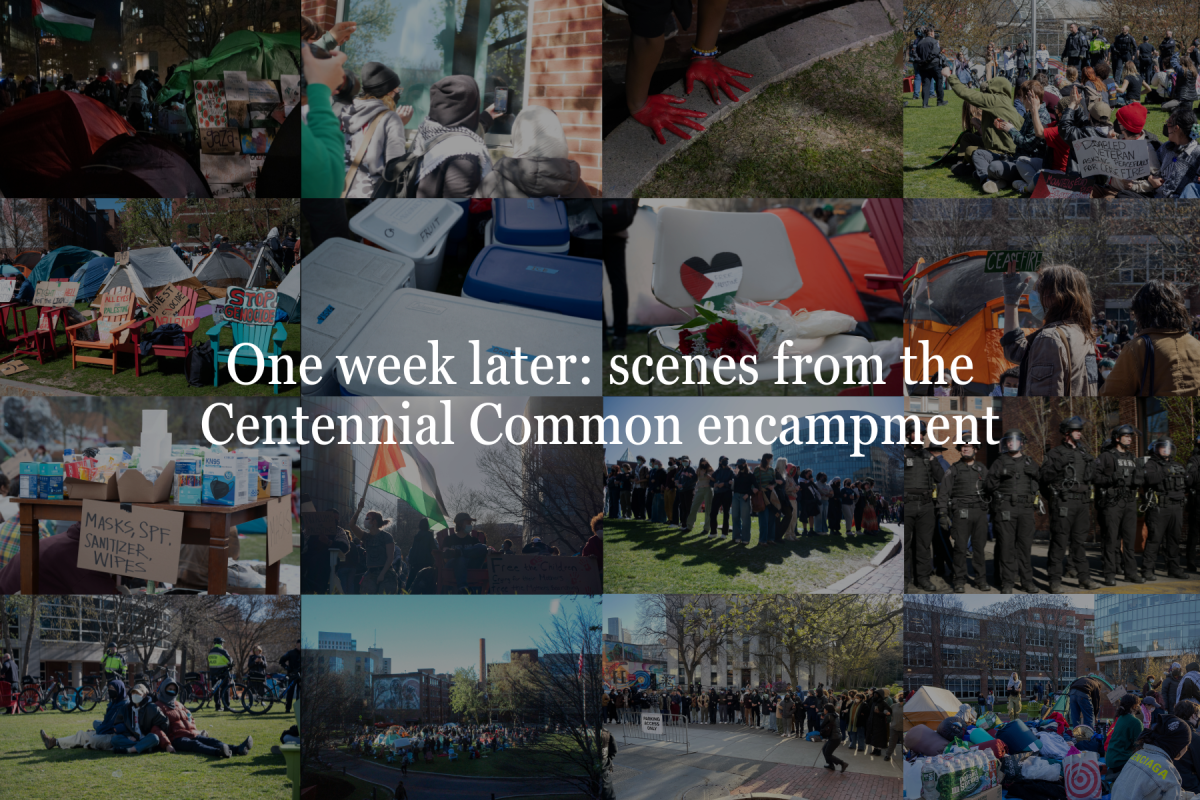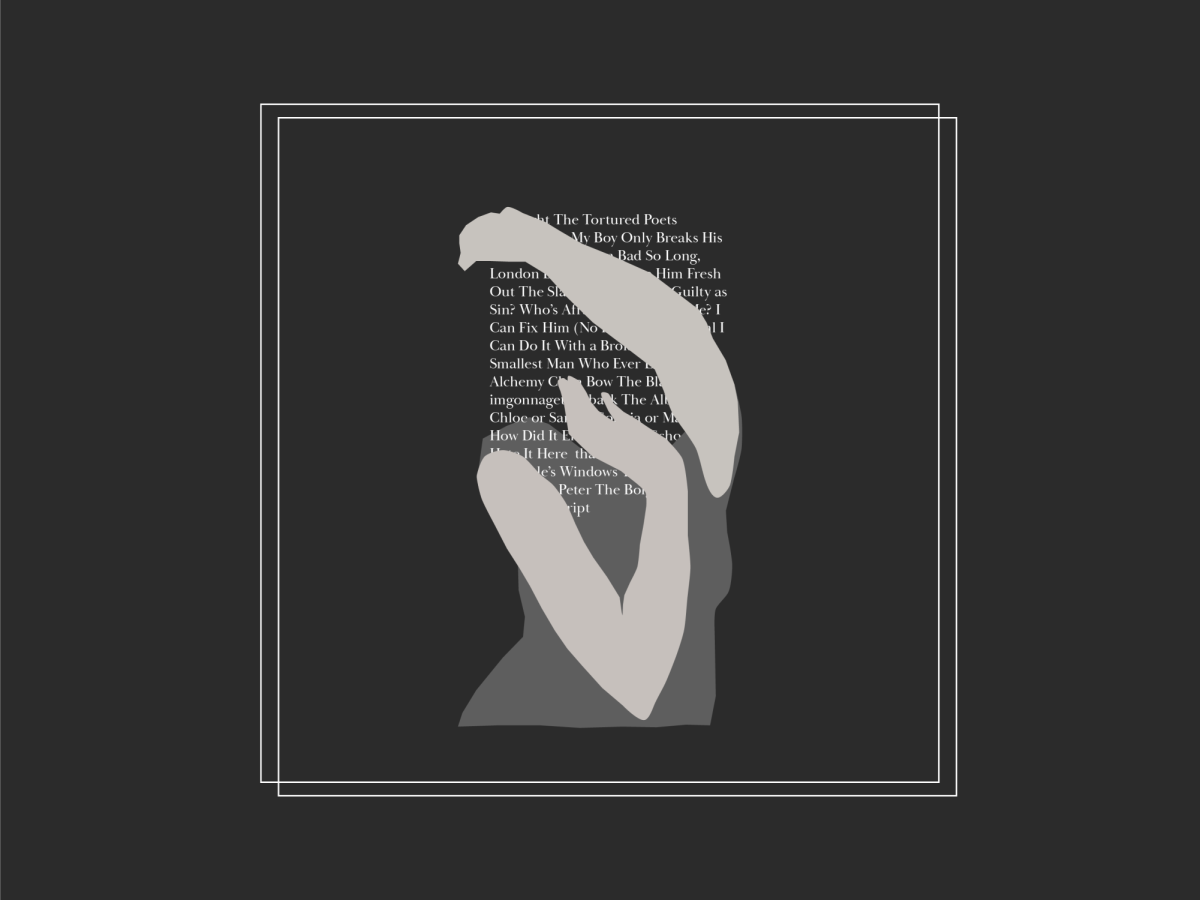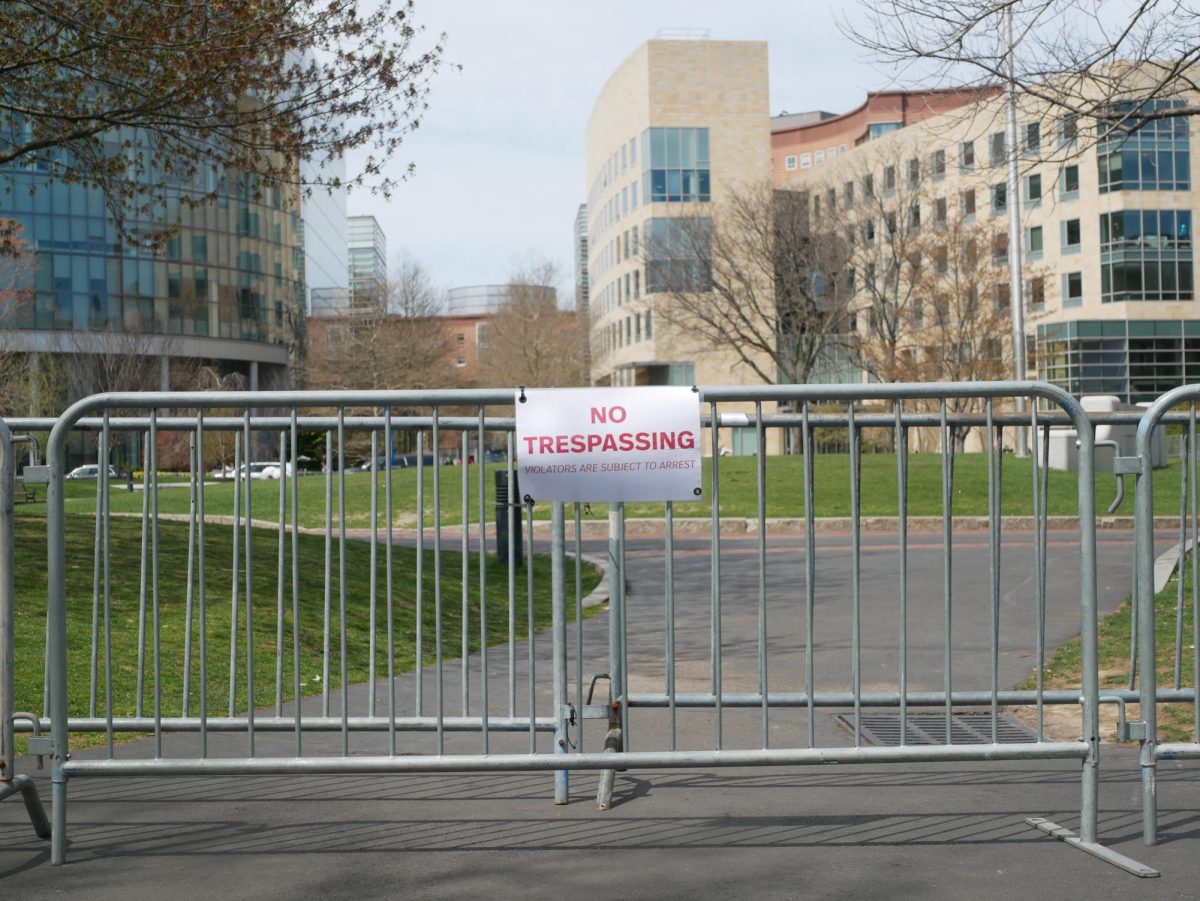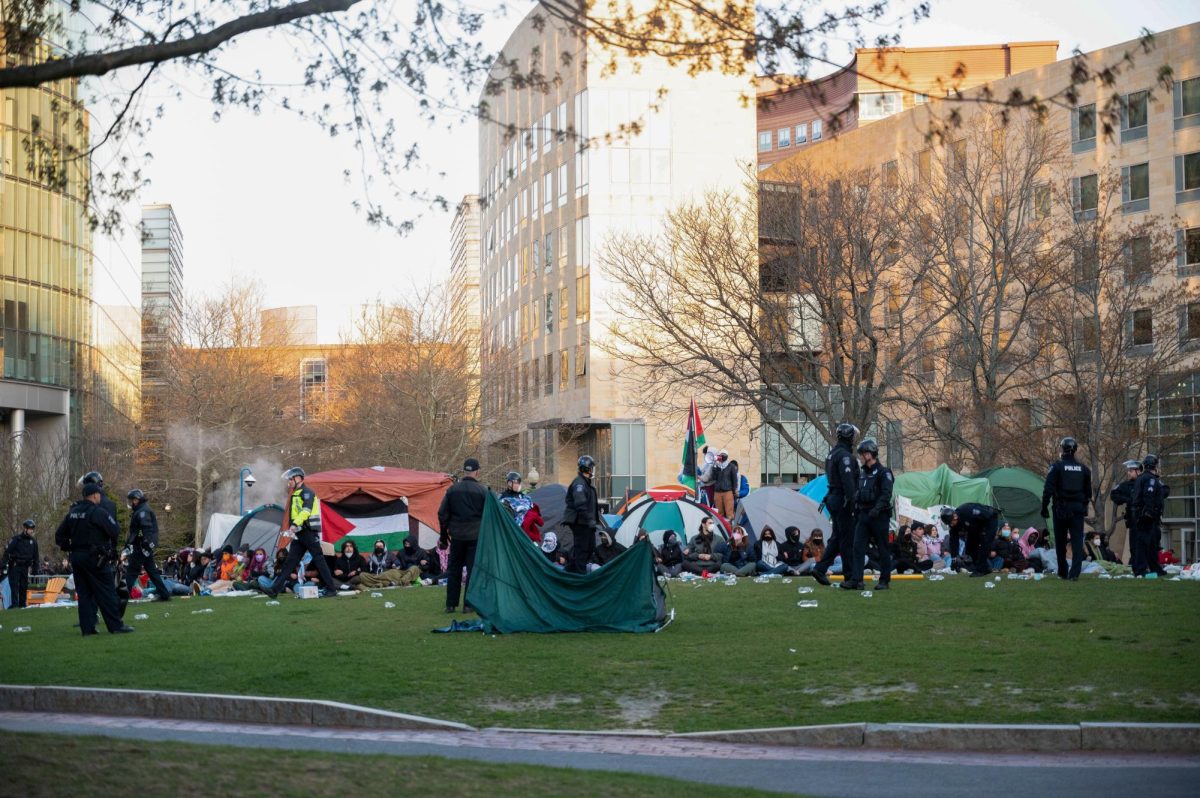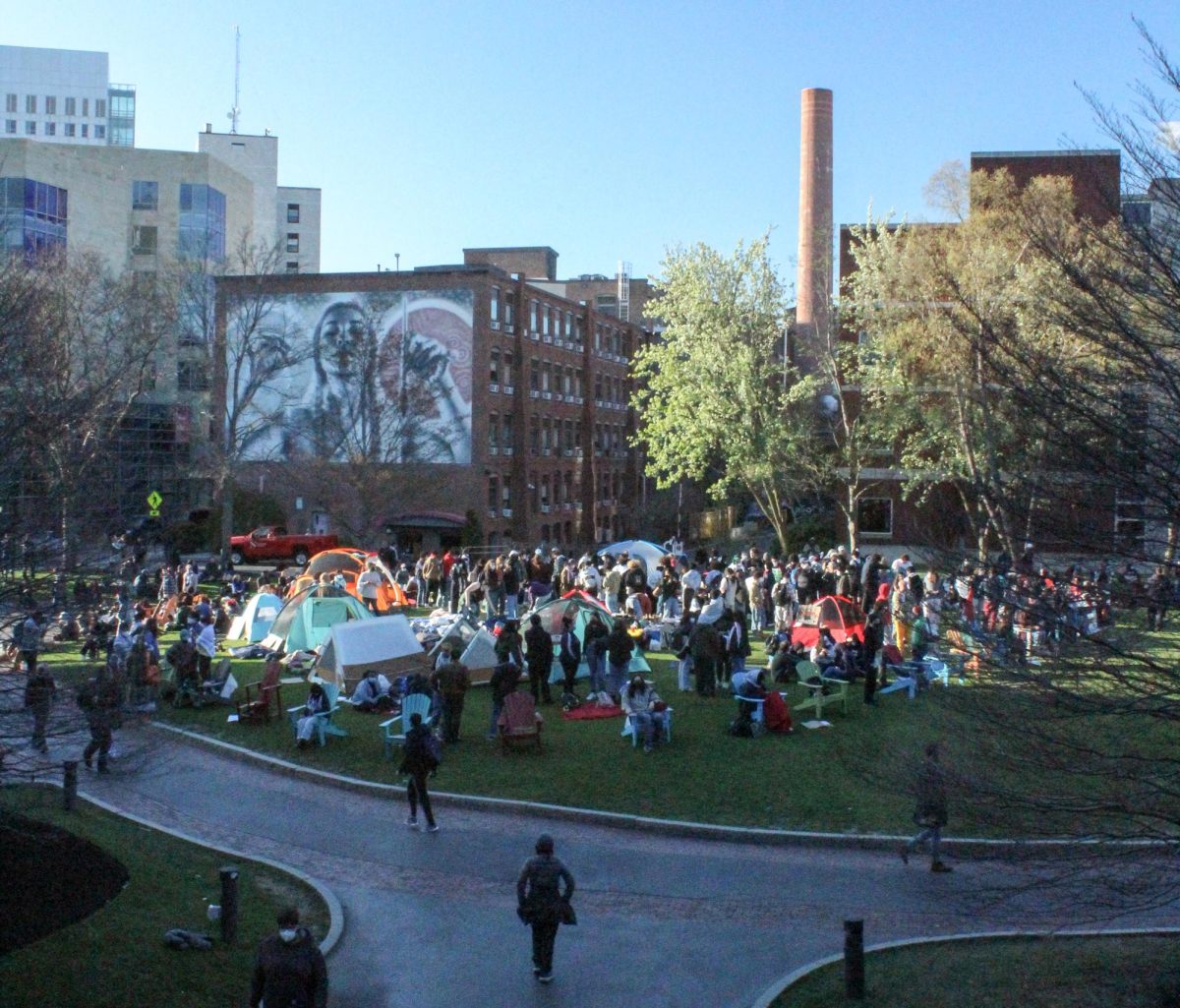By Nicole Haley
Student apathy at Northeastern has been an issue raised by several groups and individual students throughout recent years and now, a group of students is coming together to change that. Brothers About Change (BAC) was officially recognized as a student group at NU February 28.
BAC is an organization established primarily for African American college men interested in coming together to reach out to the community and have a voice on campus. The club, though started by African American male students, is open to men and women of all races. As president of BAC, Omari Patterson, a junior chemical engineering major, said he hopes to encourage NU men to “get out of their dorms and live the college experience.”
At the group’s meeting last Wednesday, members discussed ways to get involved on campus and within the Boston community. Emphasizing the importance of community service, Richard Harris, BAC advisor and director of multicultural engineering, encouraged the group to sacrifice a Saturday morning to work with Northeastern’s chapter of the Paul Robeson Institute sponsored by Concerned Black Men in Massachusetts.
“It’s a way to connect with younger brothers and an opportunity to network and meet older brothers,” Harris said.
About six BAC members participated in the program last Saturday that brought together young students in grades three through 12 with older mentors to discuss community service projects. The program is meant to provide positive examples and encouraging relationships for minority youth. Patterson said that the group discussed ideas to help the elderly and the homeless as well.
Patterson, remembering his days of coaching a junior wrestling club, stressed the importance of giving back to the community.
“My coaches were great people that really had an impact on my life. Giving back is something I feel everyone should do,” Patterson said.
One of the key elements of BAC, according to Patterson, is the time set aside at the end of each meeting for members to discuss any topics that concern them. Last week, during a discussion about relationships, the members spoke openly of love, marriage and children.
Harris said that due to the the negative public image of black men associated with the repeated portrayals of the urban black single mother, the family-oriented black man is not well represented.
“What we portray is eventually what we produce,” Harris said.
Louis Antoine, a freshman engineering major, expressed concern about a lack of positive male role models for black youth in urban communities. Antoine said that without good examples there is “too much learning on your own.”
“Family, especially parents, are supposed to be the people that are the best link to your past and the ones most likely to be with you in the future,” Antoine said.
Recalling an earlier discussion topic of African American men in prison, Patterson said that the group dialogues provide a “sense of what needs to happen.”
When the group began to ask why these men end up in prison, the members wondered if their lives would be different if these men were provided more guidance as young boys.
“Now it becomes a matter of let’s go ahead and get involved in the community with programs like the Paul Robeson Institute,” Patterson said.
Uwe Hurley, a freshman political science major, said that he joined BAC because he thought it was important for minority men to “unite and be about something.”
Hurley expressed hope that greater involvement in the community will help project a positive image of minority men.
“We’re going to try and get out there in the community and show our faces to the younger generation,” Hurley said.
Adamant that people should not have to “pay to be a part of something,” Patterson said that he will try to make BAC an organization without membership fees. Instead, Patterson said the members will work together to get their funds.
“If you want to be part of this organization and see this organization grow and keep going you’ll help fundraise,” Patterson said.
Harris also said that having more people involved is more important than membership fees.
“There’s no way to put a monetary figure on young men taking responsibility and trying to become positive images for each other as well as for the community at large,” Harris said.
Addressing the need for educating the Northeastern community about important controversial issues, Patterson said that one of BAC’s first major projects will be to organize a forum where people can discuss and learn about affirmative action.
Explaining that his views were recently altered, Patterson said that the true scope and dynamic of affirmative action is something that “people just don’t know about.”
He said that commonly used terms like “quota” offer a misleading perception of affirmative action and he hopes BAC will be able to create a dialogue about the issue. Patterson and the members said that BAC is eager to work with other groups on campus in bringing about change. He noted that the diversity of campus organizations is very important and so is cooperation.
“When you see different cultures and interact with those cultures, you get a better understanding of people,” Patterson said.
Although the group currently has only four official members, an average of about 15 people have been regularly attending meetings held every Wednesday from 5 to 6 p.m. in the Cabral Center of the John D. O’Bryant African American Institute. Patterson hopes to attract new members through planning and hosting social events and other types of programs like open mic nights.


